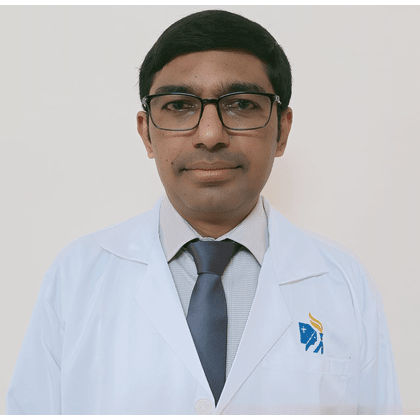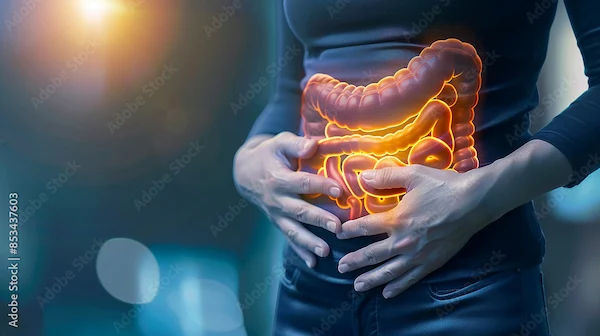Cardiomyopathy: Overview of Symptoms and Treatment
Understand cardiomyopathy, its types, symptoms, and treatment options. Learn how this heart muscle disease affects cardiac function and what steps can help manage and improve heart health.


Heart health is crucial for overall well-being, and conditions like cardiomyopathy can significantly impact your life. If you or a loved one has been diagnosed with cardiomyopathy, it’s natural to have questions and concerns. This article will help you understand what cardiomyopathy is, its symptoms, causes, and available treatments, all in simple, easy-to-understand language.
What Is Cardiomyopathy?
Cardiomyopathy is a disease of the heart muscle that makes it harder for the heart to pump blood effectively. Over time, the heart muscle can become thick, stiff, enlarged, or weak, leading to complications like heart failure or irregular heartbeats (arrhythmias).
There are three main types of cardiomyopathy:
1. Dilated Cardiomyopathy (DCM): The heart chambers enlarge and weaken, reducing pumping efficiency.
2. Hypertrophic Cardiomyopathy (HCM): The heart muscle thickens, making it harder for the heart to fill with blood.
3. Restrictive Cardiomyopathy (RCM): The heart muscle becomes stiff, restricting proper filling.
Consult a Top Cardiologist
What Are the Symptoms of Cardiomyopathy?
Symptoms can vary depending on the type and severity of the condition. Some people may not notice symptoms in the early stages, while others may experience:
Shortness of breath, especially during physical activity or when lying down
Fatigue and weakness
Swelling in the legs, ankles, or feet (edema)
Irregular heartbeats (palpitations, fluttering, or skipped beats)
Dizziness or fainting
Chest pain (especially during exercise)
If you experience any of these symptoms, it’s important to consult a doctor for proper evaluation.
What Causes Cardiomyopathy?
The exact cause isn’t always clear, but several factors can contribute:
Genetics: Some types (like HCM) run in families.
High blood pressure (hypertension): Puts extra strain on the heart.
Heart valve problems: Can lead to muscle damage over time.
Previous heart attacks: Can weaken the heart muscle.
Chronic alcohol abuse or drug use: Can damage heart cells.
Infections or inflammatory conditions: Like myocarditis (heart inflammation).
Diabetes or thyroid disorders: Can affect heart function.
How Is Cardiomyopathy Diagnosed?
If your doctor suspects cardiomyopathy, they may recommend:
Echocardiogram (Echo): An ultrasound of the heart to check its structure and function.
Electrocardiogram (ECG/EKG): Measures electrical activity to detect irregular rhythms.
MRI or CT scan: Provides detailed images of the heart.
Blood tests: To check for underlying conditions.
Stress test: Monitors heart function during exercise.
Early diagnosis helps in managing the condition better.
How Is Cardiomyopathy Treated?
While cardiomyopathy is a chronic condition, treatments can help manage symptoms and improve heart function. Options include:
1. Medications
Beta-blockers or calcium channel blockers: Help control heart rate and blood pressure.
Diuretics ("water pills"): Reduce fluid buildup and swelling.
Blood thinners: Prevent clots in high-risk patients.
ACE inhibitors or ARBs: Help relax blood vessels and reduce strain on the heart.
2. Lifestyle Changes
Heart-healthy diet: Low in salt, processed foods, and saturated fats.
Regular, moderate exercise: As advised by your doctor.
Avoiding alcohol and smoking: These can worsen heart function.
Managing stress: Yoga, meditation, or deep breathing can help.
3. Medical Devices
Pacemaker or ICD (Implantable Cardioverter-Defibrillator): Helps regulate heart rhythm.
LVAD (Left Ventricular Assist Device): Supports heart pumping in severe cases.
4. Surgery (In Advanced Cases)
Heart transplant: For end-stage heart failure when other treatments fail.
Living with Cardiomyopathy: Tips for Better Heart Health
Below are the tips for better heart health,
Follow your doctor’s advice on medications and check-ups.
Monitor symptoms and report any worsening to your healthcare provider.
Staying active but avoiding overexertion like walking, swimming, or light exercises are good.
Maintain a healthy weight to reduce strain on your heart.
Limit caffeine and alcohol, as they can trigger arrhythmias.
When to Seek Emergency Help
Call for medical help immediately if you experience:
Severe chest pain
Sudden shortness of breath
Fainting or extreme dizziness
Rapid or irregular heartbeat with weakness
Take Charge of Your Heart Health
At Apollo 24|7, you can book a heart health check-up or consultation with expert cardiologists. Early detection and care can make a big difference in living a healthier, more active life.
Conclusion
Cardiomyopathy can be managed with the right treatment and lifestyle adjustments. If you suspect symptoms or have a family history of heart disease, don’t delay, consult a cardiologist.
Consult a Top Cardiologist
Consult a Top Cardiologist

Dr. Anand Ravi
General Physician
2 Years • MBBS
Bengaluru
PRESTIGE SHANTHINIKETAN - SOCIETY CLINIC, Bengaluru

Dr. Tripti Deb
Cardiologist
40 Years • MBBS, MD, DM, FACC, FESC
Hyderabad
Apollo Hospitals Jubilee Hills, Hyderabad

Dr. Deepesh Venkatraman
Cardiologist
10 Years • MBBS, MD (Gen Med), DM (Cardio), DNB (Cardio)
Chennai
Apollo Medical Centre Kotturpuram, Chennai

Dr. Vijayakumar Subban
Cardiologist
15 Years • MD, DM (Cardiology), FNB (Intreventional Cardiology), Fellowship in Interventional Cardiology (The Prince Charles Hospital, Brisbane, Australia), Fellowship in Intravascular Imaging and Physiology (Asan Medical Center, Seoul, Korea), Cardiac CT (SCCT- Level II), Cardiac MRI (SCMR- Level I)
Chennai
Apollo Hospitals Greams Road, Chennai
(150+ Patients)

Dr. Dayanashre N
General Physician
3 Years • MBBS
Bengaluru
PRESTIGE SHANTHINIKETAN - SOCIETY CLINIC, Bengaluru
Consult a Top Cardiologist

Dr. Anand Ravi
General Physician
2 Years • MBBS
Bengaluru
PRESTIGE SHANTHINIKETAN - SOCIETY CLINIC, Bengaluru

Dr. Tripti Deb
Cardiologist
40 Years • MBBS, MD, DM, FACC, FESC
Hyderabad
Apollo Hospitals Jubilee Hills, Hyderabad

Dr. Deepesh Venkatraman
Cardiologist
10 Years • MBBS, MD (Gen Med), DM (Cardio), DNB (Cardio)
Chennai
Apollo Medical Centre Kotturpuram, Chennai

Dr. Vijayakumar Subban
Cardiologist
15 Years • MD, DM (Cardiology), FNB (Intreventional Cardiology), Fellowship in Interventional Cardiology (The Prince Charles Hospital, Brisbane, Australia), Fellowship in Intravascular Imaging and Physiology (Asan Medical Center, Seoul, Korea), Cardiac CT (SCCT- Level II), Cardiac MRI (SCMR- Level I)
Chennai
Apollo Hospitals Greams Road, Chennai
(150+ Patients)

Dr. Dayanashre N
General Physician
3 Years • MBBS
Bengaluru
PRESTIGE SHANTHINIKETAN - SOCIETY CLINIC, Bengaluru




